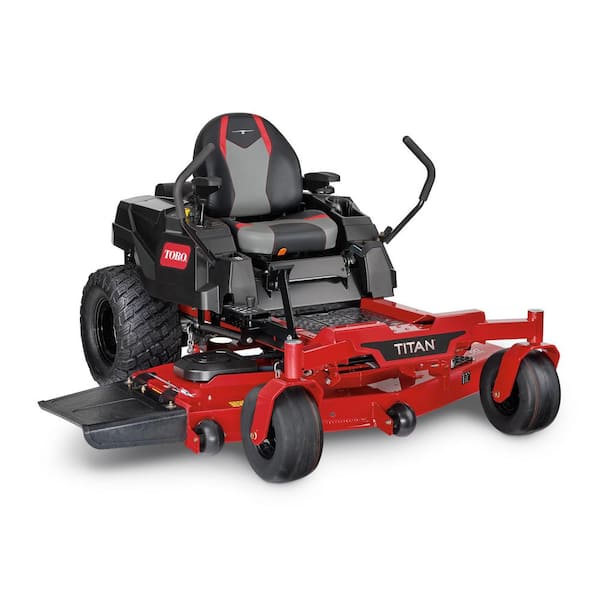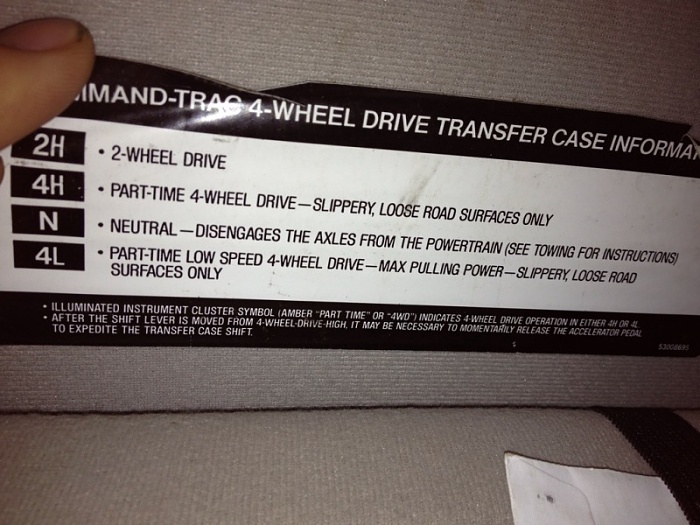4 Wheel Drive Jerks When Turning
Experiencing jerks while turning in 4-wheel drive vehicles may be due to issues with the differential or improper tire inflation. These jerks can worsen if the differential fluid needs changing or the tires are unevenly inflated.
Navigating sharp turns in a 4-wheel drive vehicle should be smooth, without any jerking motions. If you’re facing this problem, it’s essential to address it promptly to avoid any further damage to your vehicle. Understanding the root cause of these jerks can help pinpoint the necessary repairs or adjustments needed.
By maintaining your 4-wheel drive system properly, you can enjoy a smoother and safer driving experience on and off the road.
Common Symptoms Of 4 Wheel Drive Issues
When it comes to 4 wheel drive systems, there are several common symptoms that can indicate potential issues. Recognizing these signs early on can help you address the problem before it escalates into a costly repair. In this article, we will discuss two of the most prevalent symptoms: jerking while turning and difficulty steering.
Jerking While Turning
One of the telltale signs of a 4 wheel drive issue is experiencing jerking sensations while turning. This can happen whether you are driving at low or high speeds. The jerking can be abrupt and unsettling, often causing the vehicle to bounce or jolt unnaturally. It can make turning corners a hassle and compromise your overall driving experience.
This symptom can often be attributed to a problem in the transfer case or differentials of your 4 wheel drive system. The transfer case is responsible for distributing power between the front and rear wheels, while the differentials allow for varying wheel speeds during turns. If there is an issue with either of these components, it can lead to uneven power transfer and result in the jerking sensation.
Difficulty Steering
Another common symptom of 4 wheel drive issues is difficulty in steering, particularly when making tight turns. You may notice that the steering wheel becomes harder to turn or requires more effort than usual. This can be especially problematic in parking lots, where maneuvering around tight spaces becomes a challenge.
The difficulty in steering can be caused by various factors, one of which is a malfunctioning power steering pump. The power steering system helps to make steering easier by providing hydraulic assistance. If there is a problem with the power steering pump, such as low fluid levels or a faulty pump, it can lead to reduced power assistance and make turning the wheel feel heavy and cumbersome.
In addition to the power steering pump, other components like the steering gear or linkage may also contribute to steering difficulties. It is important to identify and address these issues promptly to ensure optimal steering performance and overall safety.

Credit: www.homedepot.com
Causes Of 4 Wheel Drive Jerking During Turning
Experiencing jerking in your vehicle’s 4-wheel drive system when turning can be both frustrating and concerning. Understanding the possible reasons behind this issue is crucial in ensuring a smooth and safe driving experience.
Lack Of Proper Lubrication
Inadequate lubrication within the 4WD system can lead to jerking during turns. Without proper lubrication, the components cannot move smoothly, causing disruptions in the system.
Faulty Differential Or Transfer Case
A faulty differential or transfer case can also result in jerking when turning. These components are essential for proper distribution of power between the wheels, and any malfunction can cause irregular movements.
Diagnosing 4 Wheel Drive Problems
When experiencing issues with your 4 wheel drive system, it is crucial to conduct a thorough diagnosis to pinpoint the underlying problem accurately. By focusing on specific components such as CV joints and steering elements, you can effectively troubleshoot the issues.
Inspection Of Cv Joints
To begin diagnosing 4 wheel drive problems, start by inspecting the CV joints. Look for signs of wear, such as cracks or tears in the boots, which could indicate potential issues with the joints. Ensure there is no excessive play or noise during rotation.
Examination Of Steering Components
Next, examine the steering components to identify any issues that may be affecting the 4 wheel drive system. Check for loose or damaged tie rods, ball joints, or steering linkage that could impact the functionality of the system. Ensure all components are securely in place.
Preventive Maintenance For 4 Wheel Drive Systems
Proper maintenance is essential for 4-wheel drive systems to ensure smooth and reliable operation. Neglecting regular maintenance can lead to costly repairs and compromise the safety and performance of your vehicle. By following a few simple preventive maintenance practices, you can extend the lifespan of your 4-wheel drive system and avoid unnecessary hassles on the road.
Regular Fluid Checks And Changes
Checking and changing the fluids in your 4-wheel drive system is crucial for its optimal performance. The fluids in components like the transfer case and differentials play a vital role in lubricating and cooling these parts. Over time, these fluids can become contaminated with dirt, debris, and metal particles, which can cause excessive wear and damage.
To ensure your 4-wheel drive system operates smoothly, it’s important to adhere to the manufacturer’s recommended fluid change intervals. Regularly checking the fluid levels and visually inspecting them for any signs of contamination is also essential.
When performing fluid changes, it’s crucial to use the recommended fluid specified by the vehicle manufacturer. Using the wrong type of fluid can have damaging effects on the 4-wheel drive system. Additionally, make sure to follow the proper procedures for draining and refilling the fluid, as outlined in the vehicle’s owner’s manual.
Proper Tire Inflation And Rotation
Tires are a critical component of 4-wheel drive systems, and proper tire care is essential for their longevity and performance. One of the key aspects of tire maintenance is ensuring proper inflation. Underinflated tires can cause excessive wear on the tread, reduce fuel efficiency, and negatively impact the 4-wheel drive system’s performance.
Regularly check your tire pressure using a reliable tire pressure gauge, and ensure that it matches the recommended levels provided by the vehicle manufacturer. Proper tire rotation is also important for maintaining even wear on all four tires, ensuring optimal traction, and preventing premature tire replacement.
Consult your vehicle’s owner’s manual for the recommended rotation intervals and patterns. Following these guidelines will help distribute tire wear evenly, providing a smoother and safer driving experience.
Seeking Professional Help For 4 Wheel Drive Issues
When experiencing issues with your 4-wheel drive vehicle, it’s pivotal to seek professional assistance. Addressing the jerking sensation during turning promptly can prevent further damage and ensure a safer driving experience. Whether it’s mechanical or electrical, finding a qualified mechanic and understanding warranty coverage are crucial steps for resolving these issues.
Finding A Qualified Mechanic
Choosing a competent mechanic for your 4-wheel drive concerns is essential. Look for certified professionals with experience in diagnosing and repairing 4-wheel drive systems. Asking for recommendations from fellow 4-wheel drive enthusiasts or consulting online reviews can help you find a reputable mechanic in your area.
Understanding Warranty Coverage
Understanding the warranty coverage for your 4-wheel drive system is vital for effective problem resolution. Review the warranty documentation provided by your vehicle manufacturer to identify if the jerking issue is covered. Be prepared to provide detailed information to the mechanic about the problem and inquire about warranty-related repairs.

Credit: www.cherokeeforum.com

Credit: www.amazon.com
Frequently Asked Questions Of 4 Wheel Drive Jerks When Turning
Why Is My 4wd Jumpy When I Turn?
Your 4WD may be jumpy when turning due to worn-out suspension components or uneven tire pressure. It can also be caused by issues with the differential or transfer case. Regular maintenance and inspections can help address these problems.
Why Does My Car Jerk When Turning?
Your car may jerk when turning due to several reasons, including worn-out or faulty suspension components, malfunctioning power steering system, or low hydraulic fluid level. It’s essential to have a professional inspection to determine the exact cause and address the issue promptly.
Why Does My 4 Wheel Drive Bind When I Turn?
Your 4-wheel drive may bind when turning due to issues with the differential or axle components. Check for worn-out parts.
Does 4 Wheel Drive Affect Turning?
Yes, 4 wheel drive can affect turning by reducing traction on dry pavement but can improve turning on slippery surfaces.
Why Does My 4 Wheel Drive Jerk When Turning?
4 wheel drive jerking when turning could be due to worn-out universal joints or low differential fluid.
How Can I Fix 4 Wheel Drive Jerking Issues?
Check universal joints, differential fluid, and power steering fluid levels. If needed, replace or refill.
What Causes 4 Wheel Drive To Jerk In 4×4 Mode?
4 wheel drive jerking in 4×4 mode may occur due to a faulty transfer case or differential issues.
Conclusion
Dealing with a 4-wheel drive that jerks when turning can be frustrating. However, by understanding the causes and taking appropriate measures, such as checking the power steering fluid level and examining the differential fluids, you can alleviate the issue. Regular maintenance, including rotating tires and inspecting suspension components, will also help ensure a smoother ride.
Keep in mind the importance of professional assistance to address any underlying mechanical problems. Stay proactive and enjoy a hassle-free driving experience.
